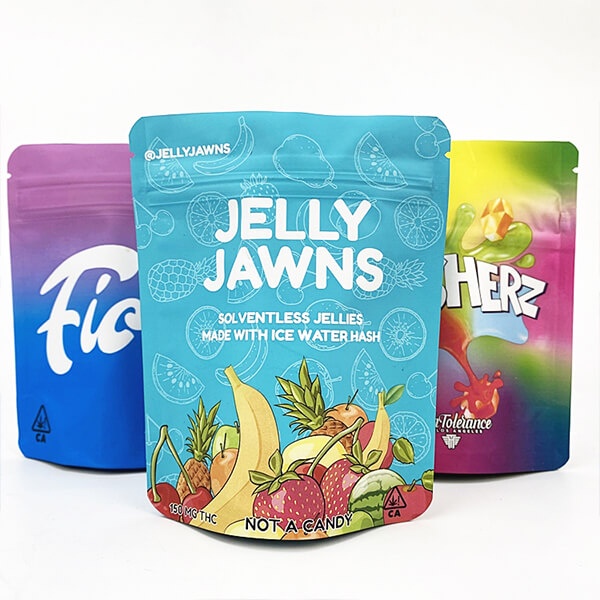Introduction to Biodegradable Heat Seal Bags
In today's environmentally conscious world, businesses are increasingly turning to eco-friendly packaging solutions to reduce their carbon footprint and appeal to eco-conscious consumers. Biodegradable heat seal bags have emerged as a sustainable alternative to traditional plastic bags, offering a range of benefits for both businesses and the environment.
Advantages of Biodegradable Heat Seal Bags
Biodegradable heat seal bags offer several advantages over conventional plastic bags. Firstly, they are environmentally friendly, as they decompose naturally over time, reducing the accumulation of non-biodegradable waste in landfills and oceans. Secondly, these bags appeal to environmentally conscious consumers who prefer eco-friendly products, giving businesses a competitive edge. Moreover, using biodegradable heat seal bags can help companies comply with increasingly stringent environmental regulations.
Materials Used in Biodegradable Heat Seal Bags
Biodegradable heat seal bags are typically made from bioplastics, compostable films, or sustainable paper materials. Bioplastics are derived from renewable resources such as corn starch or sugarcane, making them biodegradable and compostable. Compostable films break down into organic matter under specific conditions, while sustainable paper options offer a recyclable and biodegradable alternative.
Applications of Biodegradable Heat Seal Bags
These bags find diverse applications across industries, including food packaging, pharmaceuticals, and retail. In the food industry, biodegradable heat seal bags are used for packaging fresh produce, snacks, and baked goods, ensuring product freshness while reducing environmental impact. In pharmaceuticals, these bags maintain product integrity and safety, especially for sensitive items. Retailers and e-commerce businesses use biodegradable heat seal bags for shipping and packaging, meeting consumer demand for sustainable packaging solutions.
Comparison with Traditional Plastic Bags
When compared to traditional plastic bags, biodegradable heat seal bags have a significantly lower environmental impact. Traditional plastic bags can take hundreds of years to decompose, contributing to pollution and harming wildlife. In contrast, biodegradable heat seal bags break down naturally, reducing environmental pollution and conserving natural resources. While the initial cost of biodegradable bags may be slightly higher, the long-term benefits for the environment and brand reputation outweigh the investment.
Design and Customization Options
Biodegradable heat seal bags offer ample opportunities for branding and customization. Businesses can print logos, product information, and eco-friendly messages on these bags, enhancing brand visibility and conveying a commitment to sustainability. Additionally, companies can choose from a variety of sizes, shapes, and colors to suit their packaging needs and customer preferences.
Disposal and Decomposition Process
Proper disposal of biodegradable heat seal bags is essential for effective decomposition. These bags break down through biological processes, such as microbial activity, sunlight exposure, and oxygenation. Composting facilities accelerate the decomposition process, converting biodegradable materials into nutrient-rich compost for soil enrichment. Consumers can contribute to environmental sustainability by disposing of biodegradable bags in compost bins or designated recycling facilities.
Market Trends and Growth Prospects
The demand for biodegradable packaging solutions is on the rise, driven by consumer awareness, regulatory changes, and sustainability initiatives. Market research indicates a growing preference for eco-friendly products, influencing businesses to adopt biodegradable packaging options. As environmental concerns continue to escalate, the biodegradable heat seal bags market is poised for significant growth, presenting opportunities for innovation and market expansion.
Case Studies and Success Stories
Several companies have successfully implemented biodegradable heat seal bags in their packaging strategies, showcasing the benefits of sustainable packaging solutions. Case studies highlight reduced environmental impact, positive customer feedback, and enhanced brand reputation as key outcomes of transitioning to biodegradable packaging. These success stories serve as inspiration for other businesses looking to embrace eco-friendly practices.
Visit to know about kraft mylar bags.
Conclusion
Biodegradable heat seal bags offer a sustainable and eco-friendly packaging solution for businesses across industries. Their environmental benefits, consumer appeal, and regulatory compliance make them a strategic choice for companies committed to sustainability. As the demand for eco-friendly packaging continues to grow, biodegradable heat seal bags are poised to play a crucial role in shaping the future of packaging, promoting environmental stewardship, and meeting consumer expectations.
FAQs (Frequently Asked Questions)
- What are biodegradable heat seal bags?
- How long does it take for biodegradable heat seal bags to decompose?
- Are biodegradable heat seal bags suitable for food packaging?
- Can I customize the design of biodegradable heat seal bags?
- What are the cost considerations of using biodegradable heat seal bags?


No comments yet